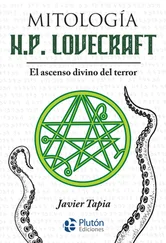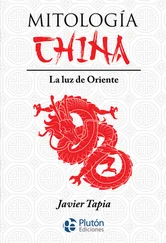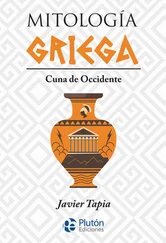What had happened to Chapter Eleven? Why had he changed so much? It was being away from home, Tessie said. It was the times. It was all this trouble with the war. I, however, have a different answer. I suspect that Chapter Eleven’s transformation was caused in no small part by that day on his bed when his life was decided by lottery. Am I projecting? Saddling my brother with my own obsessions with chance and fate? Maybe. But as we planned a trip—a trip that had been promised when Milton was saved from another war—it appeared that Chapter Eleven, taking chemical trips of his own, was trying to escape what he had dimly perceived while wrapped in an afghan: the possibility that not only his draft number was decided by lottery, but that everything was. Chapter Eleven was hiding from this discovery, hiding behind windowpane, hiding on the top of elevators, hiding in the bed of Meg Zemka with her multiple O’s and bad teeth, Meg Zemka who hissed in his ear while they made love, “Forget your family, man! They’re bourgeois pigs! Your dad’s an exploiter, man! Forget ’em. They’re dead, man. Dead. This is what’s real. Right here. Come and get it, baby!”
It occurred to me today that I’m not as far along as I thought. Writing my story isn’t the courageous act of liberation I had hoped it would be. Writing is solitary, furtive, and I know all about those things. I’m an expert in the underground life. Is it really my apolitical temperament that makes me keep my distance from the intersexual rights movement? Couldn’t it also be fear? Of standing up. Of becoming one of them .
Still, you can only do what you’re able. If this story is written only for myself, then so be it. But it doesn’t feel that way. I feel you out there, reader. This is the only kind of intimacy I’m comfortable with. Just the two of us, here in the dark.
Things weren’t always like this. In college, I had a girlfriend. Her name was Olivia. We were drawn together by our common woundedness. Olivia had been savagely attacked when she was only thirteen, nearly raped. The police had caught the guy who did it and Olivia had testified in court numerous times. The ordeal had arrested her development. Instead of doing the normal things a high school girl did, she had had to remain that thirteen-year-old girl on the witness stand. While Olivia and I were both intellectually capable of handling the college curriculum, of excelling in it even, we remained in key ways emotionally adolescent. We cried a lot in bed. I remember the first time we took off our clothes in front of each other. It was like unwinding bandages. I was as much of a man as Olivia could bear at that point. I was her starter kit.
After college, I took a trip around the world. I tried to forget my body by keeping it in motion. Nine months later, back home, I took the Foreign Service exam and, a year after that, started working for the State Department. A perfect job for me. Three years in one place, two in another. Never long enough to form a solid attachment to anyone. In Brussels, I fell in love with a bartender who claimed not to care about the uncommon way I was made. I was so grateful that I asked her to marry me, though I found her dull company, ambitionless, too much of a shouter, a hitter. Fortunately, she refused my proposal and ran off with someone else. Who has there been since? A few here and there, never long-lasting. And so, without permanence, I have fallen into the routine of my incomplete seductions. The chatting up I’m good at. The dinners and drinks. The clinches in doorways. But then I’m off. “I’ve got a meeting with the ambassador in the morning,” I say. And they believe me. They believe the ambassador wants to be briefed on the upcoming Aaron Copland tribute.
It’s getting harder all the time. With Olivia and every woman who came after her there has been this knowledge to deal with: the great fact of my condition. The Obscure Object and I met unawares, however, in blissful ignorance.
* * *
After all the screaming in our house, there reigned, that winter on Middlesex, only silence. A silence so profound that, like the left foot of the President’s secretary, it erased portions of the official record. A soggy, evasive season during which Milton, unable to admit that Chapter Eleven’s attack had broken his heart, began visibly to swell with rage, so that almost anything set him off, a long red light, ice milk for dessert instead of ice cream. (His was a loud silence but a silence nonetheless.) A winter during which Tessie’s worries about her children immobilized her, so that she failed to return Christmas presents that didn’t fit, and merely put them in the closet, without getting a refund. At the end of this wounded, dishonest season, as the first crocuses appeared, returning from their winter in the underworld, Calliope Stephanides, who also felt something stirring in the soil of her being, found herself reading the classics.
Spring semester of eighth grade brought me into Mr. da Silva’s English class. A group of only five students, we met in the greenhouse on the second floor. Spider plants let down vines from the glass roof. Closer to our heads geraniums crowded in, giving off a smell somewhere between licorice and aluminum. In addition to me, there was Reetika, Tina, Joanne, and Maxine Grossinger. Though our parents were friends, I hardly knew Maxine. She didn’t mix with the other kids on Middlesex. She was always practicing her violin. She was the only Jewish kid at school. She ate lunch alone, spooning kosher food from Tupperware. I assumed her pallor was the result of being indoors all the time and that the blue vein that beat wildly at her temple was a kind of inner metronome.
Mr. da Silva had been born in Brazil. This was hard to notice. He wasn’t exactly the Carnival type. The Latin details of his childhood (the hammock, the outdoor tub) had been erased by a North American education and a love of the European novel. Now he was a liberal Democrat and wore black armbands in support of radical causes. He taught Sunday school at a local Episcopal church. He had a pink, cultivated face and dark blond hair that fell into his eyes when he recited poetry. Sometimes he picked thistles or wildflowers from the green and wore them in the lapel of his jacket. He had a short, compact body, and often did isometric exercises between class periods. He played the recorder, too. A music stand in his classroom held sheet music, early Baroque pieces, mostly.
He was a great teacher, Mr. da Silva. He treated us with complete seriousness, as if we eighth graders, during fifth period, might settle something scholars had been arguing about for centuries. He listened to our chirping, his hairline pressing down on his eyes. When he spoke himself, it was in complete paragraphs. If you listened closely it was possible to hear the dashes and commas in his speech, even the colons and semicolons. Mr. da Silva had a relevant quotation for everything that happened to him and in this way evaded real life. Instead of eating his lunch, he told you what Oblonsky and Levin had for lunch in Anna Karenina . Or, describing a sunset from Daniel Deronda , he failed to notice the one that was presently falling over Michigan.
Mr. da Silva had spent a summer in Greece six years before. He was still keyed up about it. When he described visiting the Mani, his voice became even mellower than usual, and his eyes glistened. Unable to find a hotel one night, he had slept on the ground, awaking the next morning to find himself beneath an olive tree. Mr. da Silva had never forgotten that tree. They had had a meaningful exchange, the two of them. Olive trees are intimate creatures, eloquent in their twistedness. It’s easy to understand why the ancients believed human spirits could be trapped inside them. Mr. da Silva had felt this, waking up in his sleeping bag.
Читать дальше
Конец ознакомительного отрывка
Купить книгу












